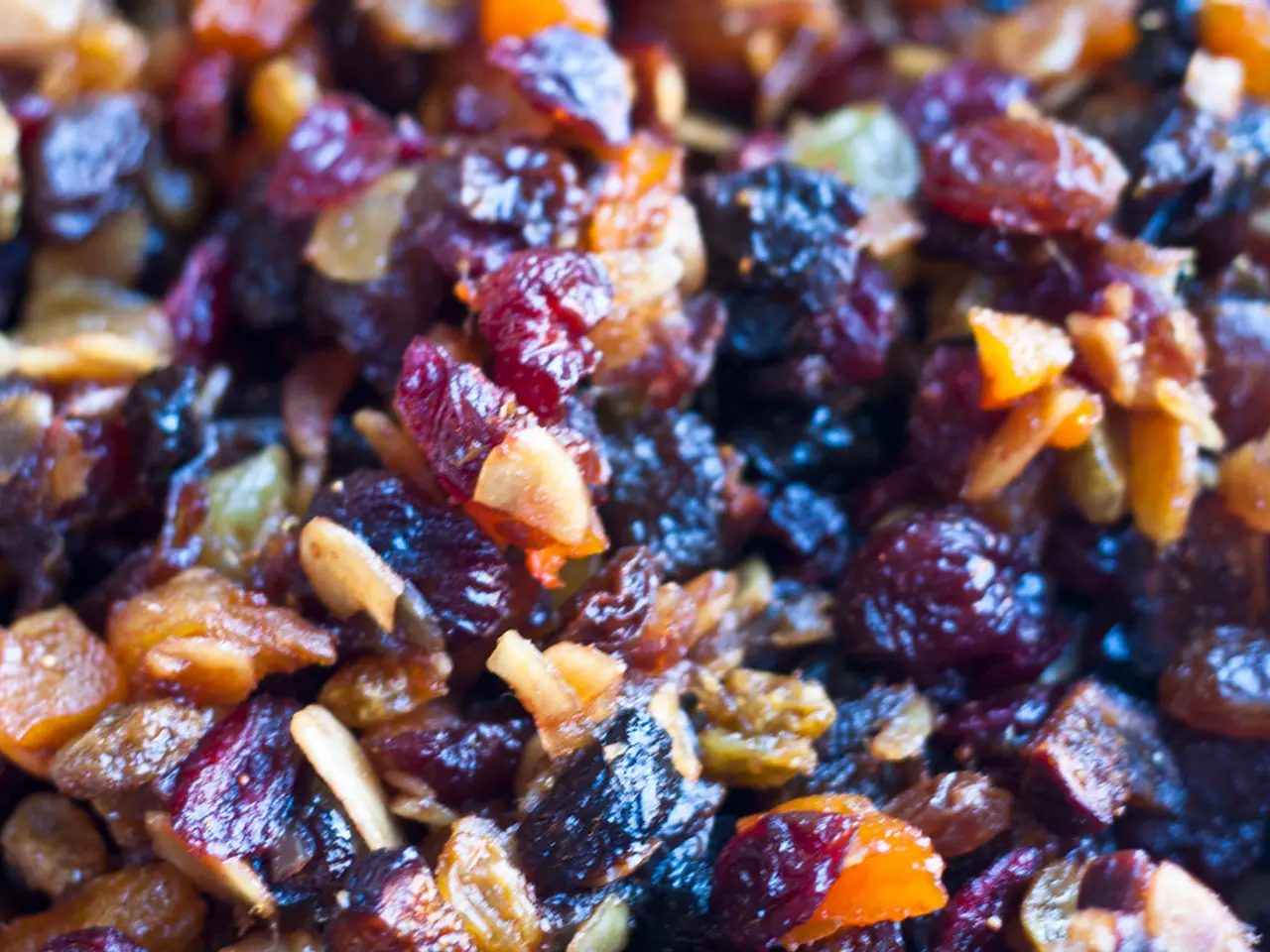Fermented Milk Drink: Kefir Production Explored
Discover the incredible health benefits of milk kefir, a probiotic-rich fermented dairy drink that has been traditionally heralded as an elixir of long life and health. Originating from the Caucuses, the region where Europe meets Asia, milk kefir is now gaining global recognition for its numerous health advantages.
Milk kefir contains over 300 microbial species of gut-friendly bacteria, yeasts, and fungi, forming a symbiotic relationship that supports gut health and overall microbiome stability. This diverse microbial community contributes to a host of health benefits, including immune system support, improved digestion, and enhanced nutrient absorption.
One of the key components of milk kefir is kefiran, a polysaccharide that supports the growth and stability of these beneficial microbes. Kefir's antimicrobial properties can inhibit harmful pathogens like Salmonella and E. coli, potentially replacing some antibiotics by producing antimicrobial substances.
Milk kefir is particularly rich in beneficial bacteria such as lactobacillus brevis, streptococcus thermophillus, lactobacillus casei, lactobacillus helveticus, and lactobacillus delbrueckii, as well as yeasts like candida maris, candida inconspicua, and saccharomyces cerevisiae. These microorganisms metabolize the milk's lactose, creating a sour, thick beverage rich in vitamins, probiotics, kefiran, and other nourishing components.
Milk kefir is not only a powerhouse of probiotics but also a great source of essential nutrients like vitamin K, folate, biotin, and phosphorus. It is about 99% lactose-free, making it suitable for lactose-intolerant people, and it helps with digestive issues such as diarrhea, constipation, and irritable bowel syndrome by promoting gut motility and improving stool consistency.
Moreover, milk kefir may play a role in the prevention of cancer, exhibiting antitumoural effects. Research suggests that milk kefir could potentially help combat gastrointestinal distress caused by infections from bacillus cereus, salmonella, e coli, and helictobacter pylori. Studies have also found milk kefir to play a role in the prevention and treatment of bladder cancer, breast cancer, and colon cancer.
Preparing milk kefir at home is a simple process. All you need are active milk kefir grains, milk (preferably raw), a clean glass jar, and a cheesecloth or napkin. Mix the kefir grains with milk, cover the jar, and allow it to culture at room temperature for 12 to 24 hours until the milk thickens and whey pockets appear. Strain the kefir, store it in a sealed jar in the refrigerator, and save the grains for the next batch.
Fermentation time can be adjusted based on taste preference and consistency desired, typically ranging from 12 to 72 hours. With this simple process, you can produce a nutrient-dense, probiotic-rich milk kefir at home that can boost your health in multiple ways.
In summary, milk kefir is a powerful probiotic drink with benefits for immunity, digestion, antimicrobial protection, nutrient absorption, and gut health restoration. Its traditional reputation as an elixir of long life and health is well-deserved, and with its easy home-making process, it's never been easier to reap these benefits for yourself.
References: [1] https://www.ncbi.nlm.nih.gov/pmc/articles/PMC6068294/ [2] https://www.healthline.com/nutrition/how-to-make-kefir [3] https://www.ncbi.nlm.nih.gov/pmc/articles/PMC5832908/ [4] https://www.ncbi.nlm.nih.gov/pmc/articles/PMC5832908/
- The science of milk kefir, a fermented dairy drink, is closely linked to health-and-wellness, as it supports gut health and immune system function.
- Incorporating milk kefir into your fitness-and-exercise routine and lifestyle can offer additional benefits, such as improved digestion and nutrient absorption.
- Nutritionists and home cooks often recommend incorporating milk kefir in food-and-drink recipes to boost their probiotic content and promote overall wellness.
- Therapies-and-treatments utilizing milk kefir's unique microbial profile are being explored for their potential antibacterial properties and role in cancer prevention.
- Learning to make milk kefir at home is a simple and rewarding experience, providing a nutrient-dense, probiotic-rich beverage that can contribute to a healthier lifestyle.




